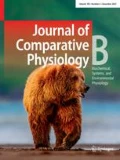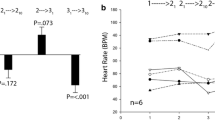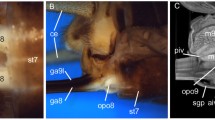Abstract
The heart of Drosophila melanogaster is a simple muscular tube with a posterior pulsatile portion and a thoracic-cranial vessel. The pacemaker, located caudally, is myogenic. Its rate of firing is modulated by neurotransmitters. Serotonin, octopamine, norepineph-rine, dopamine, and acetylcholine accelerate the heart, in that order of potency. Dihydroxyphenylalanine, γ-aminobutyric acid, glutamate, and glycine have no effect. Generally, the regularity of the heartbeat is not adversely affected by treatment with any of these neurotransmitters. We show here that amnesiac, a neurological mutation, and Dihydroxyphenylalanine decarboxylase temperature sensitive, a mutation that interferes with synthesis of dopamine, norepinephrine, and serotonin, result in slower heart rate and reduced regularity across a normal range of temperatures for these flies. Dopamine-N-acetyltransferase, which is on the catabolic route to dopamine, serotonin, and octopamine, has no effect. hypoactiveC reduces the rate of the heart, but its mechanism of action is unknown.
Similar content being viewed by others
Author information
Authors and Affiliations
Additional information
Accepted: 5 August 1996
Rights and permissions
About this article
Cite this article
Johnson, E., Ringo, J. & Dowse, H. Modulation of Drosophila heartbeat by neurotransmitters. J Comp Physiol B 167, 89–97 (1997). https://doi.org/10.1007/s003600050051
Issue Date:
DOI: https://doi.org/10.1007/s003600050051




